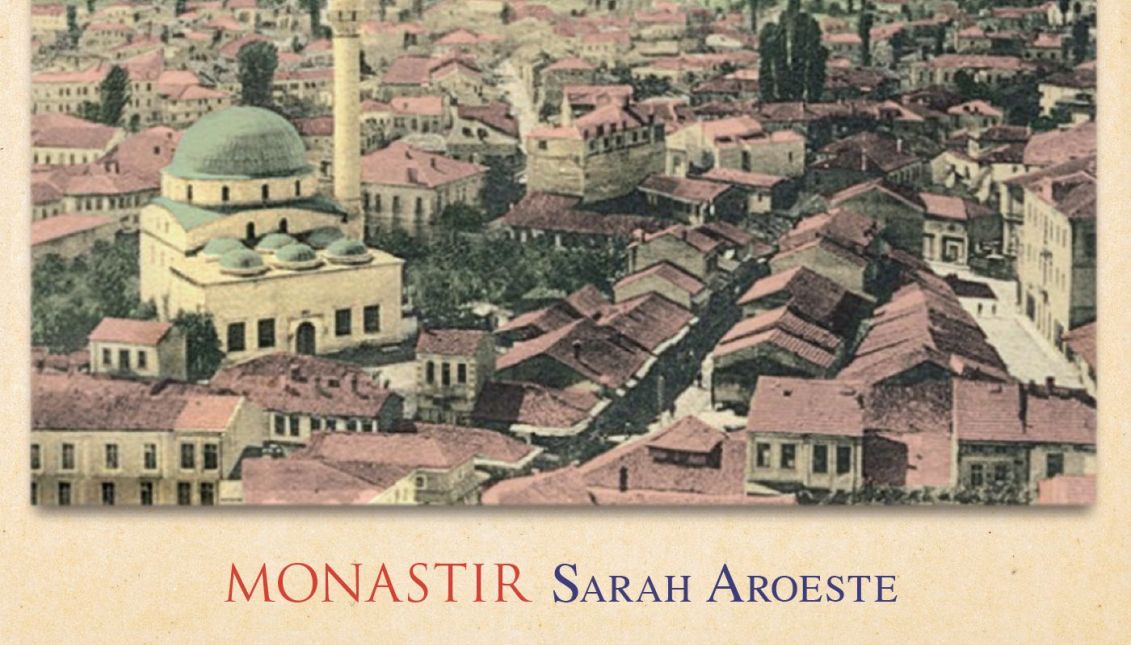
Sarah Aroeste reconnects with her Sephardic homeland at Monastir
The life of a Sephardic neighborhood is recovered inside a record.
Sarah Aroeste has selected 10 songs that give an inside look into the life of Jewish Monastir before World War II erased it on her album Monastir, to be released on June 25, 2021, connecting musicians primarily from Macedonia and Israel.
From kantikas (folk songs) to romances (narrative ballads often inspired by medieval epic tales), and from centuries-old melodies to originals, each song on the album has a centuries-old story behind it.
"This project is the culmination of years of research and collaboration with participants from around the world," says Aroeste. "After performing in Monastir for the first time in 2017, I was blown away by the reception I received from the citizens who were so eager to engage with me and my family history. I was extremely moved, especially since no Jews have lived in Monastir since World War II. I knew then that I had to use music, my best form of expression, to help preserve this important piece of history that is at the root of so much of my Sephardic identity."
And so The Monastir Project was born.
Some of the songs are in Macedonian and refer to Monastir by name, such as "Od Bitola pojdov," which, together with Aroeste's Israeli producer Shai Bachar, was recorded with a choir consisting of Macedonian and Israeli voices.
RELATED CONTENT
Some songs specifically mention the Jewish neighborhood that once existed, as in "Edno vreme si bev ergen," in which a non-Jewish man tries to convert a Jewish girl to become a "Slav," a song that surely offers a window into the culture of the city before World War II, when the populations lived side by side. The recording features Macedonian star Sefedin Bajramov, who was born and raised in a house that was owned by the Jews of Monastirli before the Holocaust.
NEW ALBUM COVER!! #ComingSoon pic.twitter.com/sRmn3bsgTs
— Sarah Aroeste (@SarahAroeste) May 26, 2021
When Sarah Aroeste's ancestors were expelled from Spain following the Alhambra Decree in 1492, they, like many other Spanish Jewish families (known as Sephardim), migrated east and settled in Monastir, a Balkan city located at the commercial crossroads between Turkey and Western Europe, in what is now northern Macedonia. For centuries, Monastir's Jewish community flourished alongside its neighbors and enjoyed a unique history, with its own customs, religious observances, linguistic patterns and so on.
But nothing could prevent World War II and the Nazi invasion from decimating Monastir and its neighboring Jewish communities. On March 11, 1943, 3,276 Jewish men, women and children from Monastir were rounded up and transported to their deaths in the Treblinka concentration camp.
Monastir lost 98% of its Jewish population and, with it, an entire culture. In total, 7,215 Macedonian Jews perished. Today, there are approximately 200 people who make up a Jewish community in the capital of Skopje, and there is not a single Jew left in Monastir, which has since been renamed Bitola.
But the legacy of Jewish Monastir lives on.











LEAVE A COMMENT: